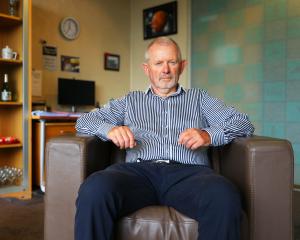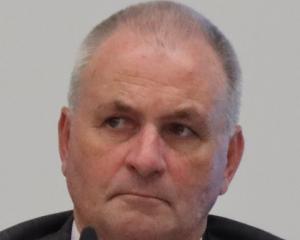An Invercargill man should find out on Monday whether he must return CDs given to him by the police, which contained information he was not entitled to have.
Accountant David Christopher Payne (42) should also find out then whether he must surrender his laptop and other computer equipment so a forensic examiner can see whether he still has copies of the information.
The Crown is seeking court orders for the return of the CDs and the examination of his computer equipment. After a two-hour hearing in the Invercargill District Court yesterday afternoon, Judge Kevin Phillips reserved his decision and said he would try to give it on Monday. Payne had had the information for ''quite some time'' and there was no need for him to make an immediate decision, Judge Phillips said.
Payne is one of seven Queenstown and Southland men facing drugs charges as a result of last year's Operation Canary police investigation. When they requested Operation Canary information under the evidence discovery process, six received paper files but Payne was given computer discs, Sarah McKenzie, appearing for the Crown, said yesterday.
There were hundreds of files, many of which had sections blacked out to keep information such as the names of police informants confidential. But Payne discovered that if he copied a censored page into a word document, he could backtrack through the police editing and read the information which had been blacked out, Ms McKenzie said.
It was accepted Payne had not committed any criminal offence. He was asked to return the disks but said he would not unless there was a court order, she said. An application for a court order was lodged on February 8. However, an amended order was filed on Thursday when it became clear Payne had talked to The Southland Times about how he had been able to read the censored information, Ms McKenzie said.
The article said the police had ''blundered'' by handing over censored documents which could be easily restored. Although he was not named in the article, the Crown was satisfied it was him because he was the only person who had been given discs, Ms McKenzie said. The amended order sought the examination of Payne's computers and hard drive.
''The Crown is aware he has made copies of the discs. We believe he may have provided others with the discs he has created. He may have provided them to his co-accused, but we don't know that.''
The amended application also sought the return of any Operation Canary information held by the co-accused and Fairfax Newspapers, publishers of The Southland Times. The Crown was satisfied all paper files held by the co-accused had been returned to the police and no copies had been kept, Ms McKenzie said. Fairfax had indicated it would return any information it held if the court order was granted. For Payne, counsel David Slater said, while Payne accepted he had information police never intended him to have, he (Mr Slater) did not believe the district court had any legislative basis from which to order the return of the discs or an examination of his client's computer.
''The remedy lies under the Evidence Act. It is that my client cannot use any of the information he has been given ... mistakenly or erroneously in any court proceedings.''
Judge Phillips, Ms McKenzie and Mr Slater all agreed a High Court judge would have the power to make such orders. Ms McKenzie said a High Court judge would be in Invercargill next week and the Crown had already made inquiries about an urgent hearing should Judge Phillips decide he could not rule on the application. Judge Phillips said while he might not have the legislative power to rule on the application, he had ''inherent powers'' under the District Court Act which allowed him to make any orders pertaining to cases before the district court.
Ms McKenzie said she believed Judge Phillips had legislative powers under three sections of the Evidence Act which allowed judges to make ''the necessary directions'' to protect confidential or privileged information connected with a case.











